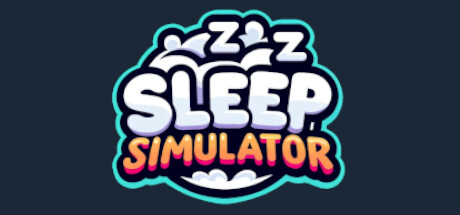
1 😀
2 😒
44,31%
Rating
$0.84
Sleep Simulator Reviews
Welcome to the world of "Sleep Simulator," where you will immerse yourself in the fascinating and hyper-realistic world of sleep.
| App ID | 3004990 |
| App Type | GAME |
| Developers | Jan Švec |
| Publishers | Jan Švec |
| Categories | Single-player |
| Genres | Simulation |
| Release Date | June 2024 |
| Platforms | Windows |
| Supported Languages | English |

3 Total Reviews
1 Positive Reviews
2 Negative Reviews
Mixed Score
Sleep Simulator has garnered a total of 3 reviews, with 1 positive reviews and 2 negative reviews, resulting in a ‘Mixed’ overall score.
Reviews Chart
Chart above illustrates the trend of feedback for Sleep Simulator over time, showcasing the dynamic changes in player opinions as new updates and features have been introduced. This visual representation helps to understand the game's reception and how it has evolved.
Recent Steam Reviews
This section displays the 10 most recent Steam reviews for the game, showcasing a mix of player experiences and sentiments. Each review summary includes the total playtime along with the number of thumbs-up and thumbs-down reactions, clearly indicating the community's feedback
Playtime:
2520 minutes
I made Chat GPT to write this revoew
Sleep Simulator: A Deep Dive into Virtual Rest and Its Implications
Introduction
In an era where digital technology constantly pushes the boundaries of entertainment and interaction, a game like "Sleep Simulator" may seem like an unconventional and unexpected addition to the gaming landscape. Unlike action-packed titles or story-driven adventures, "Sleep Simulator" offers an experience that revolves around one of humanity's most natural and essential functions—sleep. By engaging in this digital version of sleep, players step into an immersive world where they can explore the dynamics of rest, relaxation, and rejuvenation. While at first glance, this concept might seem trivial or even absurd, it raises questions about the nature of virtual experiences, the role of technology in mental and physical health, and the evolving landscape of gaming.
This essay aims to delve into the premise, mechanics, and underlying themes of "Sleep Simulator," exploring how the game taps into the modern fascination with mindfulness, stress relief, and the exploration of one's own subconscious. In addition, we will examine the broader implications of such a game, both in terms of its impact on the gaming community and its potential influence on societal perceptions of rest and sleep.
The Concept of "Sleep Simulator"
At its core, "Sleep Simulator" is designed to emulate the experience of falling asleep and staying asleep within a controlled, virtual environment. Rather than being a traditional game where players embark on quests or complete tasks, the goal is simple: to simulate sleep. The game may feature a variety of settings and conditions, such as soothing sounds, serene landscapes, or calm visual elements, all aimed at creating a peaceful atmosphere that encourages players to relax and unwind. In some versions of the game, players may also interact with sleep-related elements like calming music, relaxation exercises, or guided meditations. The primary objective is not to "win" or "lose" but to experience a virtual environment that mirrors the process of drifting into slumber.
The game could be structured in different ways, depending on its design. Some versions might focus purely on the act of drifting into sleep, offering visual and auditory cues that mimic the transition from wakefulness to deep rest. Others could simulate various stages of the sleep cycle, allowing players to experience the transitions between light and deep sleep, as well as rapid eye movement (REM) sleep. In this way, the game would aim to educate players about the science of sleep while providing them with a relaxing and immersive experience.
The Mechanics of Sleep Simulator
The gameplay mechanics in "Sleep Simulator" are vastly different from those found in typical video games. Rather than relying on fast reflexes, puzzle-solving, or combat strategies, the player’s primary goal is to achieve a state of relaxation and sleep. As such, the design of the game must cater to the physiology and psychology of sleep, making it a unique challenge for developers.
Environment Design: One of the most important aspects of the game is the creation of an immersive environment. Visuals are likely to feature soothing landscapes, such as peaceful forests, calming beaches, or serene starry skies. The color palette would consist of soft, muted tones designed to evoke a sense of tranquility. These environments are designed to be engaging but not overwhelming, allowing players to become fully absorbed without causing overstimulation.
Sound and Audio: Audio plays a significant role in the sleep process, and "Sleep Simulator" is no exception. The game might incorporate a variety of soundscapes, including the sound of rain, gentle waves, or white noise, which have been shown to aid in sleep. These sounds could be accompanied by binaural beats, which are sound frequencies that help synchronize brain waves to promote relaxation and deeper sleep. Guided sleep meditations or breathing exercises could also be integrated into the experience, teaching players techniques to ease their minds and bodies into restful slumber.
Sleep Tracking: Advanced versions of the game might use virtual tools to track how well the player is "sleeping." For example, the game could monitor virtual heart rates, simulate the body’s response to different sleeping conditions, or analyze the quality of sleep based on in-game parameters. In doing so, it could provide feedback on how players' sleep cycles progress, helping them understand what might be preventing them from achieving deep rest.
Time Progression: Time within the game may be designed to mimic the flow of real sleep, with the passage of time being gradual and calming. Some versions might incorporate a “dream” phase, where abstract, surreal elements of the player’s subconscious are represented, adding an imaginative layer to the sleep simulation.
Customization and Control: Since sleep is a highly personal experience, the game might offer players control over various aspects of the sleep environment, such as adjusting lighting, temperature, or sound intensity. Players may be able to customize their virtual sleep spaces, which could further enhance the experience of relaxation and immersion.
Themes and Meaning Behind Sleep Simulator
Though the concept of "Sleep Simulator" may seem simple, the game carries significant thematic weight. It taps into a growing interest in mindfulness and mental well-being, reflecting a larger cultural trend towards self-care and relaxation. There are several core themes embedded in the game’s design that are worth exploring.
Escapism and Stress Relief: In an age marked by high levels of stress and constant digital engagement, "Sleep Simulator" provides an opportunity for players to disconnect from the pressures of the real world. It offers an escape into a calm, quiet space, where the focus is not on achievement or competition but on relaxation and personal restoration. The game encourages players to slow down, unwind, and let go of their anxieties. In a sense, it provides an antidote to the overstimulation of modern life.
Sleep Education: "Sleep Simulator" also has the potential to educate players about the importance of sleep. Sleep is often underestimated as a critical aspect of overall health, with many individuals neglecting the quality and duration of their rest. By engaging with the game, players may develop a deeper understanding of the physiological processes behind sleep, including the different stages of the sleep cycle and their significance. Furthermore, it could raise awareness about common sleep disorders, such as insomnia, and offer tools for managing sleep-related issues.
Exploring the Subconscious: Many versions of sleep simulators include a dream-like phase that reflects the subconscious mind. This introduces an element of psychology, where the game may evoke surreal or abstract representations of thoughts and feelings that arise during sleep. In this context, the game may serve as a platform for introspection, allowing players to reflect on their mental and emotional state while they "sleep."
Social Implications of Rest: The idea of simulating sleep in a game form brings up broader questions about society’s attitudes toward rest. In a world that glorifies productivity and constant activity, "Sleep Simulator" offers a counter-narrative: it values rest and recovery as essential components of health. The game could spark a larger conversation about the importance of sleep in society, challenging the cultural notion that we must always be "on" in order to be successful.
Potential Impact and Future Directions
While the concept of "Sleep Simulator" is relatively niche, its appeal could extend far beyond gamers. The game could be useful in a variety of fields, including healthcare, mental wellness, and stress management. For individuals dealing with sleep disorders, a digital tool that mimics the sl3
👍 : 3 |
😃 : 3
Positive
Playtime:
1512 minutes
This is a pretty awful "game", but it's a decently uncomplicated achievement farm.
I put the word game in quotes because this is how the experience goes:
-Load in, to a full screened Unity build that says "click any button to sleep"
-so you click any button and you get up from the couch, and go to your room and then the screen goes dark
-it says "click to wake up"
-if you click anything, it says "you have woken up" and then it closes the game out on you.
-i hit alt+enter to sleep, then i left the window minimized for 24 hours or whatever.
That's it, there's no point, there's no options, this is a $1 achievement farm and the hardest one is like opening the game 50 times, which is really, really, really, really stupid, for how dumb this game is.
👍 : 18 |
😃 : 8
Negative







